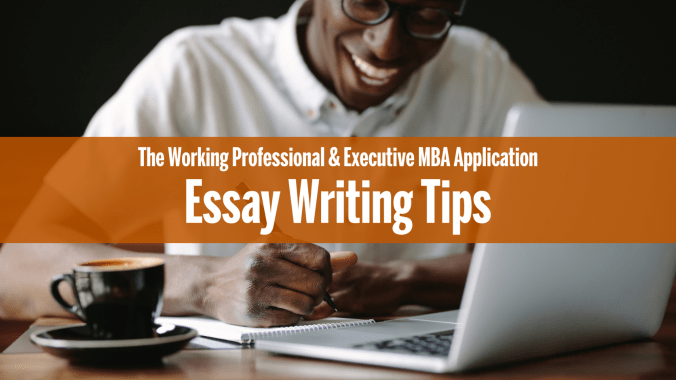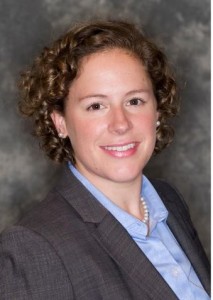Preparing for and taking an MBA admissions exam is one of the best ways to get your mind back into academic mode as you prepare for business school.
Working Professional and Executive MBA candidates have several options when considering how to complete the standardized test requirement in their application. All applicants are required to submit a GMAT, GMAT Focus, GRE, or Executive Assessment (EA) score.
We will waive the testing requirement if:
- Expired (taken 5+ years ago) GMAT, GRE, or EA score is submitted
or
- General Test Waiver (merit-based) is submitted and approved by the Admissions Committee
In addition, studying for and taking the exam – for some, even taking it multiple times – can show the Admissions Committee your commitment to the competitive business school application process and how you may approach academic challenges as a student. Our preference will always be a recent test score, however, we recognize that many students have other accomplishments and credentials that prove their ability to handle the rigors of our programs.
This post contains a lot of information, broken down into three sections:
- Should I Petition for a Test Waiver?
- Which Exam is Right for You?
- Submitting Your Test Requirement
- Impact of Your Test Score
Should I Petition for a Test Waiver?
Standardized exams like the GMAT, GMAT Focus, GRE, and EA evaluate a candidate’s academic preparedness for the rigor of business school and is one metric used to compare candidates within a large pool of applicants. Submitting a strong, valid test score will give the Admissions Committee an additional, relevant data point that may strengthen a candidate’s position for admission.
Scholarship awards are another aspect to think about when deciding which test to submit. All of our Working Professional MBA programs– The Weekend MBA in Dallas and Houston, and the Evening MBA in Austin– award small recruiting scholarships to outstanding incoming students based on the merits of the application. While the committee reviews each candidate holistically when awarding scholarships, a strong, valid test score is one of the clearest ways to distinguish yourself.
Executive MBA candidates must have at least 8 years of work experience to apply, but Executive MBA students have an average of over 14 years of experience. If your work experience is below average and only have a bachelor’s degree, plan to submit the EA.
Submitting a Test Waiver
A merit-based test waiver is available by request prior to submitting your application. Waivers/Exceptions are not available for applicants who have already sent scores to UT.
To be considered for a test waiver, an applicant must have:
- A minimum of three years of substantive and progressing post–undergraduate work experience, preferably of an analytical or quantitative nature.
AND at least one of the following:
- Completion of an undergraduate degree, with a strong academic record, preferably with analytical or quantitative courses.
- Completion of a graduate degree, with strong academic record, preferably in an analytical or quantitative discipline.
To complete the merit-based test waiver petition, candidates must submit a short statement highlighting the merits of their request, an up-to-date resume, and undergraduate and/or graduate transcripts. If you do not already have a UT EID, create one here.
- Submit the General Test Waiver petition form prior to submitting your application.
- A decision on your test waiver request will be shared within 5-10 business days after submission. Test waiver petitions must be submitted no later than 7 days prior to the application deadline for the round to which you are applying.
Approval for the test waiver petition is merit-based and considers your work experience and academic history. The Admissions Committee will be assessing your academic and professional background, looking for evidence of demonstrated readiness –specifically in quantitative subjects –for the rigorous MBA curriculum. To improve the chances of petition approval, we highly advise applicants to have an overall GPA of 3.0 or more.
The truth is that by removing one component from your application, your other components will carry more weight in the committee’s final decision.
As you evaluate your testing options or consider a test waiver petition, we challenge you to assess the quantitative data points on your application and think about what will strengthen your overall MBA candidacy. While some applicants may not need a test score to build their case, other applicants may significantly enhance their chances of being admitted (and getting a scholarship) by having a strong test score.
Which Exam is Right for You?
The Admissions Committee does not prefer one test over the other in terms of demonstrating your preparedness for business school, but it is important to think about which exam is best for you as an individual. There are different reasons to consider taking the GMAT vs GMAT Focus vs the GRE vs the EA.
While the GMAT, GMAT Focus, and GRE tests both have quantitative and verbal sections, they have noticeable differences. We encourage you to do your research and take practice tests to learn each test’s points of emphasis, and how they are scored.
When you’re considering an MBA program for a specific career path, it’s good to know what the recruiting landscape looks like. Be sure to educate yourself on choosing a test for your career search before starting your test prep.
Both The GMAT, GMAT Focus, and GRE are adaptive, which means that your success in answering questions correctly has an impact on the future questions you are given. But the tests deliver adaptive questions in different ways.
- The GMAT and GMAT Focus are adaptive by question. When you get an answer correct, the next question is more difficult, and when you get an answer wrong, the next question is less difficult. This also means that once you answer a question, you can’t go back to that question.
- The GRE is adaptive by section. If you do well on the first verbal section, you get a more difficult version of the next verbal section and vice versa.
We have included some more details about the GMAT, GMAT Focus, GRE, and EA below, but if you are unsure which exam is best for you, here are our tips:
- We recommend taking some practice tests! There’s a chance you may be more comfortable with one test format over the other. At the end of the day, the choice of which exam to take is yours.
- Build in study time and leave yourself enough room on the calendar to retake an exam if necessary. If you’re not happy with your score, you can retake either test. While many candidates take the test only once thinking it will fulfill the requirement, others recognize that a second effort is likely to yield improvement. It comes at the cost of additional time and another test fee, but the payoff can be significant if it makes you a stronger candidate.
- Make sure you submit your application as confidently as possible and with a score you feel good about.
Submitting Current or Expired GMAT, GMAT Focus, GRE, or EA Scores
For current scores, you must self-report your test scores in your application as well as have official score reports sent directly to UT– Austin by the testing agency. The date your official scores are sent to UT– Austin by the testing agency should be no later than the application round deadline, as it can take up to 3-4 weeks for new scores to be processed. If you are taking the GMAT, GMAT Focus, GRE, or EA online, allow up to two weeks to receive your score from the testing agency. You must have your test score in hand by the application deadline in order to submit your application.
For expired scores (5 years or older), you must self-report your score and upload proof of the test score in the application. Examples of proof for expired test scores include a score report you received previously from the testing agency OR documentation from another educational institution that previously received the score (e.g. for another graduate/terminal degree application).
Impact of a Test Score
Future Employment
Before you make a final decision on your testing options or a waiver petition, it’s best to research some of your target companies or industries and determine two things:
- The extent to which they evaluate a test score in reviewing job candidates.
- Whether they have a preference for one of the tests. At McCombs, we have found that most top-tier consulting and investment banking firms do ask for a candidate’s test scores, and both industries historically have favored the GMAT.
You should consider taking the GMAT, GMAT Focus, GRE, or EA as another opportunity to not only impress the Admissions Committee but also potential employers.
Academic History
Does your undergraduate or graduate transcript accurately reflect your academic ability? If your GPA is low, and you do not submit a strong test score, the Admissions Committee may have concerns about your ability to succeed in the rigorous MBA curriculum.
One other factor to consider is whether or not your quantitative ability shines elsewhere in your application. While many of our MBA students come to McCombs from non-quantitative majors, these applicants are typically able to prove their quantitative prowess through their test scores. If you come from a non-quantitative background and do not submit a strong test score, you will need to find other areas within your background or experience that can demonstrate your quantitative skills.
At the end of the day, we want to make sure that you are set up to succeed academically in the program. If the Admissions Committee has concerns about your quantitative ability, it may impact your chance of admission, or you may be required to complete pre-MBA coursework prior to admission and/or prior to enrollment.
Scholarships
Scholarship awards are limited to Weekend MBA in Dallas and Houston, and Evening MBA candidates, and are competitive and limited in number. Scholarship decisions are based on a longstanding holistic review process that considers your entire application and serves to assess the overall strength of your candidacy, including readiness for academic rigor, career goals, leadership potential, and fit with our program culture. Submitting a strong, valid test score will give the Admissions Committee an additional, relevant data point that may strengthen a candidate’s position for scholarship awards.
Please note the Executive MBA program does not provide scholarships.
Summary
As you evaluate your testing options or a test waiver petition, we challenge you to assess the quantitative data points on your application and think about what will strengthen your overall MBA candidacy. While some applicants may not need a test score to build their case, other applicants may significantly enhance their chances of being admitted (and getting a scholarship) by having a strong test score. At the end of the day, being objective about the quantitative data points you present on your application will help ensure you put your best foot forward in the admissions process.
If you have any questions during the application process, we’re here to help. Please visit our website for details on applying to each program and follow us on Instagram for an inside look into the Texas McCombs MBA.












